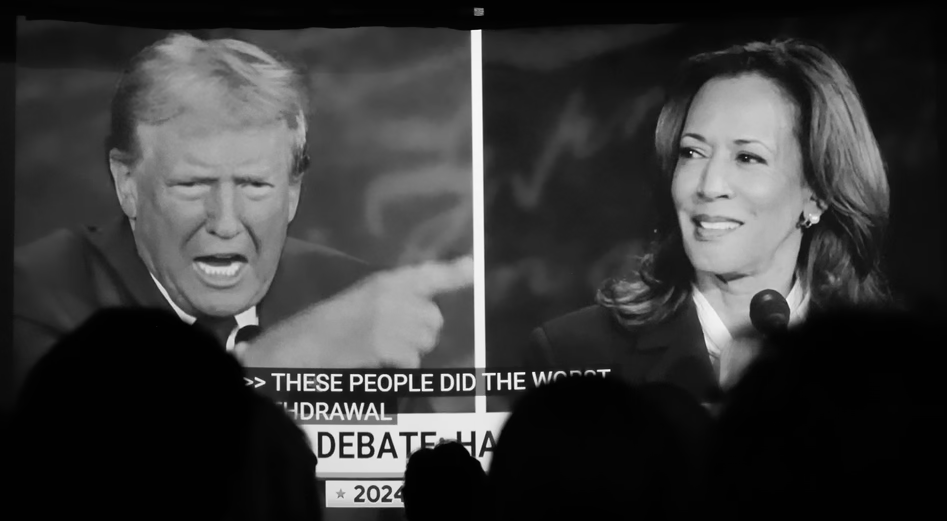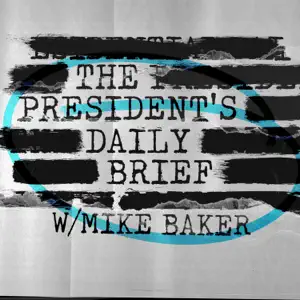
Time to end secret data laboratories—starting with the CDC
The American people are waking up to the fact that too many public health leaders have not always been straight with them. Despite housing treasure…
Thought Leader: Marty Makary

This piece mentions WWSG exclusive thought leader, Niall Ferguson.
Opinion: Having worked at the Centre for Independent Studies in Sydney from 2008 to 2012, I know how inspirational the think tank’s annual Consilium conference can be. Last week’s gathering on the Gold Coast certainly was, not least because of a remarkable speech by the historian Niall Ferguson.
I first met Ferguson in 2010, and our paths have crossed many times since at conferences across Australia, New Zealand and the United States. Now based at Stanford’s Hoover Institution, he has established himself as one of the world’s leading historians.
Although Consilium operates under Chatham House rules (unattributed comment), Ferguson has given me permission to share insights from his keynote address. I am glad he did because his warnings could not be more timely.
History, Ferguson argues, shows us that major conflicts typically arise from two conditions: economic volatility and imperial decline. Both are present in geopolitics today.
The collapse of the Soviet Union created a vacuum in Eastern Europe. Putin’s Russia, like Germany after World War I, emerged from this collapse with a sense of humiliation and revanchist ambitions.
Ferguson’s analysis was particularly striking because it systematically dismantled a narrative that has gained considerable traction in some western policy circles. Indeed, last year’s Consilium conference featured one of that other narrative’s leading proponents, John Mearsheimer. The University of Chicago political scientist argues that Nato expansion provoked Russia’s invasion of Ukraine.
Mearsheimer’s thesis, which aligns eerily with the Kremlin’s own propaganda, has found receptive audiences among those seeking to rationalise western disengagement. Yet as Ferguson demonstrated, it was not Nato enlargement that led to war in 2022 – that is just Putin’s line. Instead, as Ferguson made clear, it was the ongoing appeasement of Russia that paved the way for Putin’s war against Ukraine.
As western support for Ukraine wavers, Ferguson sees parallels between Donald Trump and Richard Nixon that should alarm allies. Like Nixon, Trump sees allies as freeloaders who must pay their way. Like Nixon, he sees the limits of American power and the importance of negotiating with adversaries.
But there is a crucial difference. Watergate destroyed Nixon. Meanwhile, Trump survived impeachment twice. As Trump himself noted: “He left. I do not leave.”
A second Trump presidency would likely reassess relationships with allies seen as not pulling their weight. That means foremost Europe. But it could also include Australia and certainly New Zealand.
We now face what Ferguson terms a new axis – China, Russia, Iran and North Korea – actively supporting each other’s aggressive ambitions.
However, as Ferguson laid out, this is not a repeat of the Cold War, and that is mainly because modern technology has changed the game entirely.
The Cold War limited choices for the big powers: either nuclear Armageddon or proxy conflicts. In contrast, today’s confrontation is more complex. Cyber warfare, psychological operations and economic coercion blur the lines between war and peace.
China’s actions around Taiwan illustrate this perfectly. No shots have yet been fired, but China’s constant pressure through military exercises, cyber-attacks and economic threats make this a new form of war.
The west’s response to the new geopolitical threats hardly inspires confidence. Germany’s regular defence budget amounts to just 1.2 percent of GDP – comparable to Weimar-era defence spending levels when the Treaty of Versailles deliberately constrained German rearmament. Though Germany claims it will meet Nato’s 2 percent target this year, this is achieved only through a temporary special fund (Sondervermögen) and some creative accounting.
The comparison with more recent history is also telling. As Ferguson reminded the audience, relative to GDP, Germany spent more than three times as much on liberating Kuwait in 1990 as it does today on supporting Ukraine.
Ferguson shared a small but telling detail from his visit to Kyiv in September: it was a pizza place founded by war veterans, which displayed the ancient Latin maxim “Si vis pacem, para bellum” – if you want peace, prepare for war. It is a lesson Ukraine and Europe have now learned the hard way over the last two and a half years.
As I listened to Ferguson’s speech, the implications for New Zealand became clear, even though he focused his remarks on his Australian audience. But they apply to New Zealand just the same, if not more so.
There are 17,000km between Wellington and Kyiv. That might tempt us to view the conflict as a remote European squabble. Yet Ferguson’s historical perspective reveals this as dangerously misguided.
World Wars, by definition, are not regionally limited affairs. And the new axis that Ferguson identified between Moscow, Tehran, Beijing and Pyongyang poses a global threat. Yet where is the response by those liberal democracies that should feel threatened?
Even Australia, our closest ally, commits just 0.05 percent of GDP to supporting Ukraine while maintaining defence spending at 1.99 percent of GDP – barely meeting Nato’s minimum threshold. And much of Australia’s projected defence increase will be absorbed by nuclear submarines under Aukus – vessels that will not arrive until 2040.
Meanwhile, Australia’s permanent uniformed personnel has dropped to just 58,600. This is happening precisely when China tells its military leaders to prepare for war by 2027.
As the new axis relentlessly adds to its combined nuclear arsenal, western leaders seem more concerned by more conventional policy questions than the prospect of World War III.
To Ferguson, this is a dangerous misreading of priorities. Authoritarian regimes study western responses carefully. They coordinate more than we might realise. They share technology, intelligence and strategic insights.
And so, according to Ferguson, Putin’s invasion was not prompted by Nato’s expansion. Quite on the contrary, it was encouraged because of Nato’s apparent weaknesses, for example the chaotic withdrawal from Afghanistan. Such signs of weakness convinced Russia that western resolve had crumbled. That same signal of weakness encouraged Hamas to attack Israel and likely shapes Chinese calculations about Taiwan.
When deterrence fails, war often follows. And so, the big question is whether the west still has the power and the will to create a credible threat against potential aggressors – and whether it can demonstrate this resolve early enough to the new axis.
Ferguson at least remains optimistic that the west could prevail in this new era of power competition, not least because of its technological and economic advantages. But all this depends on learning the lessons of history.
Time to end secret data laboratories—starting with the CDC
The American people are waking up to the fact that too many public health leaders have not always been straight with them. Despite housing treasure…
Thought Leader: Marty Makary
David Frum: How Harris Roped a Dope
This piece is by WWSG exclusive thought leader, David Frum. Vice President Kamala Harris walked onto the ABC News debate stage with a mission: trigger…
Thought Leader: David Frum
Michael Baker: Ukraine’s Faltering Front, Polish Sabotage Foiled, & Trump vs. Kamala
In this episode of The President’s Daily Brief with Mike Baker: We examine Russia’s ongoing push in eastern Ukraine. While Ukrainian forces continue their offensive…
Thought Leader: Mike Baker

